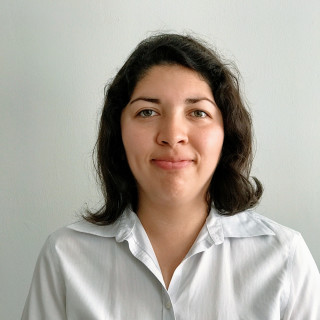My first year out of residency I took a walk with one of my new colleagues. She was also a newly minted attending and we were delighted to have found each other to share in the trials and tribulations of our new jobs. During our walk she used a term I had never heard before: “voluntold”. A portmanteau of “volunteer” and “told,” it describes a situation where you have been forced into volunteering — basically, not ‘volunteering’ at all. My friend, though relatively new to her job, had been assigned yet another administrative task by her department.
Over the course of that first year post-residency, I heard this term, and stories that called this term to mind, again and again. One of the things that I found most interesting was that it often seemed to be related to directives cushioned with compliments: “Can you please take on this additional project because you have a talent for organization?” “Can you please increase your patient cap because you’re so good at patient care?” “Can you please complete one more admission since you’re so fast and efficient?” It seemed as though the unifying experience for many of my colleagues was that supervisors rewarded good work not with promotions or salary increases, but with more, and usually more tedious, work.
In reflecting, it was clear that this trend was not only an affliction of post-residency life. The phenomenon is well-illustrated by the entity that is the chief resident — the person asked to stay on for an extra year of underpaid administrative duties at the resident salary scale. Even though in some specialties being elected chief resident doesn’t seem to make a difference for that first attending job, many of us have been indoctrinated to believe that it is an honor and reward to be offered the position, and worth it to accept despite the lower salary and higher workload. However, if this title truly is reflective of a person’s leadership ability, why is it necessary to have such a title to advance to a faculty role? If this title truly is awarded due to a person’s exemplary qualifications, why is it not properly compensated?
For women physicians especially, the effects of volunteerism and ‘voluntold-ism’ in medicine may be particularly harmful. Research across industries has shown that women are more likely to volunteer for non-promotable tasks. Furthermore, even when women don’t volunteer, it is more likely that they will be asked to volunteer, and that they will say yes when they are asked. We also know that the gender wage gap in medicine is worse than in many other fields. This all seems to align with the idea that in burdening women with more of these non-promotable and financially uncompensated tasks, we are not actually rewarding them for their work, but rather punishing them by taking more of their time with less of an opportunity for gain.
When I walked with my friend, I jokingly suggested to her that the solution is clearly for her to stop being so good at everything. But in all seriousness I believe there can be other solutions that reward people proportionately and may even help larger groups grow by balancing responsibilities across a whole team. To start, it could be important for managers across all levels of medical work to understand this volunteer disparity between women and men. Once made aware, managers could adopt new strategies to ensure a balance of work. For example, they could randomize the assignment of extra tasks across their workforce, or use a “drip” system, where an extra task that arises would just be given to the next person in line.
Another important component is to empower women to say no and to be willing to ask for compensation when they are tasked with extra responsibilities. Perhaps a way to facilitate this could be to ensure that a person continues to feel supported regardless of whether or not they agreed to take on the extra task. If women are volunteering more to seem agreeable and cooperative, it is important to ensure that these feelings are addressed through organizational culture. In addition, when it comes to special projects and work that is beyond a person’s negotiated contract, there should be associated pay incentives. Lastly, underperformers should be trained to be able to participate fully in the scope of their work, instead of passing tasks off to high performers.
In situations like the aforementioned chief resident problem, the above solutions could be implemented as well; all residents could be assigned equitable tasks, and instead of telling already high-performing residents they need to complete a chiefship in order to have a competitive application in academic medicine, perhaps we could create a culture that promotes these high performers without an extra year of low-paying work.
If we are able to free up our top performers from these unrewarding responsibilities, can we imagine what they may be able to accomplish in their other work or personal wellness?
Have you ever been asked to volunteer for something unreasonable? Share your response in the comments!
Dr. Raquel Rodriguez is a family medicine physician, currently practicing telemedicine from everywhere. She is passionate about applying technology, design, and policy innovations to improve patient care and the health of underserved populations. She tweets, rarely, at @racoolnessmd. Dr. Rodriguez is a 2022–2023 Doximity Op-Med Fellow.
Illustration by Diana Connolly






